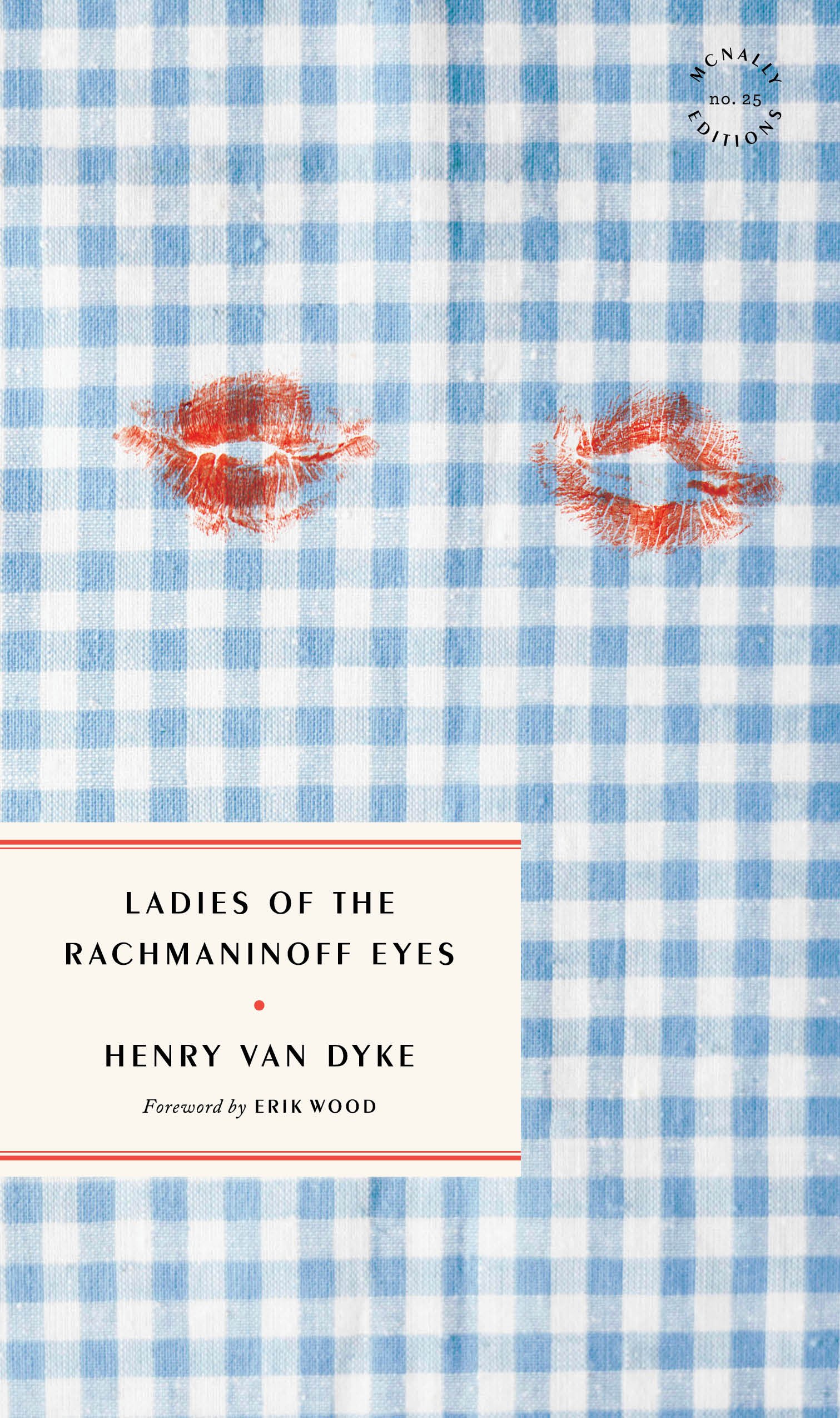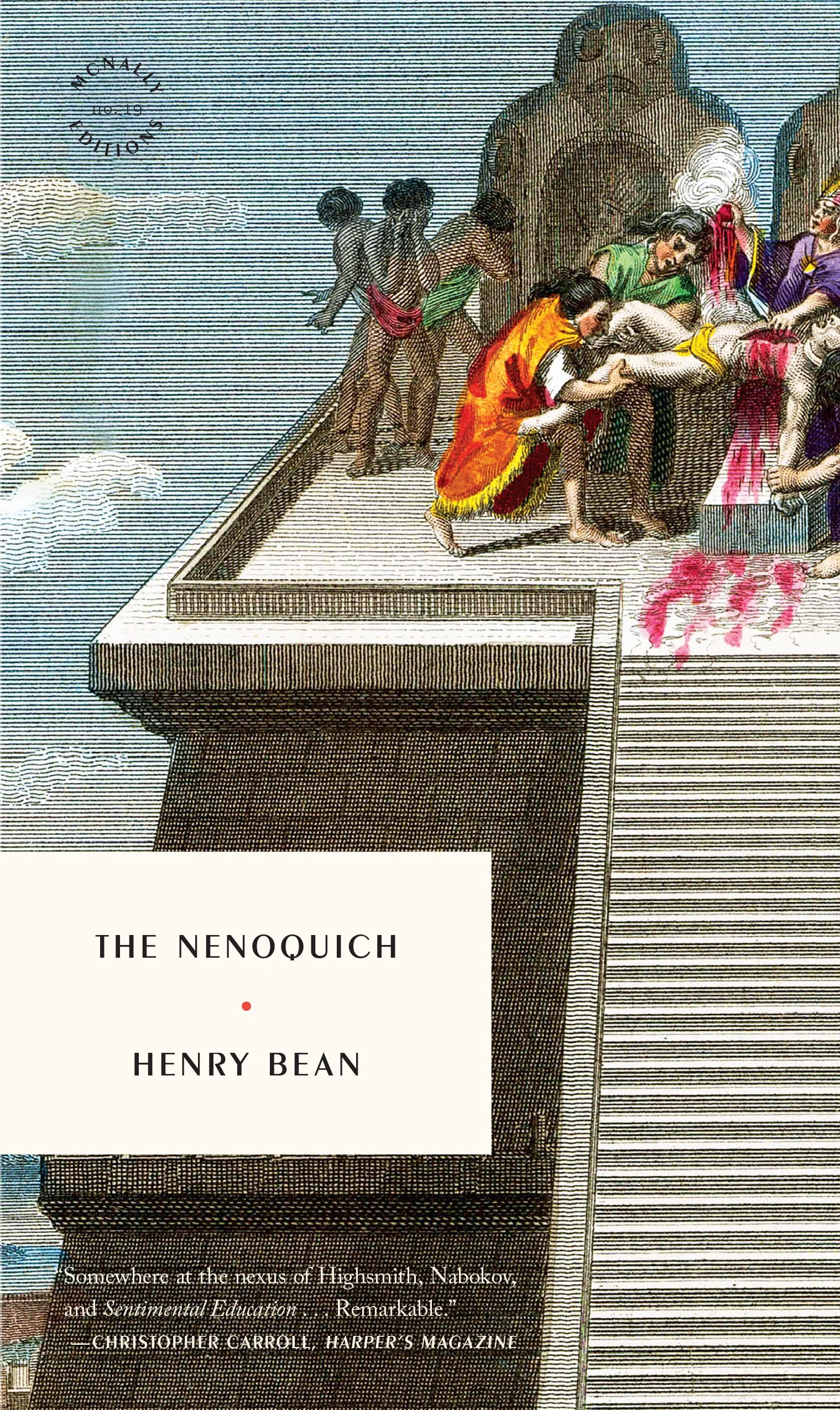In a small Michigan town, in the late 1950s, the widow Etta Klein—wealthy and Jewish—has for more than thirty years relied for aid, comfort, and companionship on her Black housekeeper Harriet Gibbs. Between “Aunt Harry” and Etta, a relationship has developed that is closer than a friendship, yet not quite a marriage. They are inseparable, at once absurdly unequal and defined by a comic codependence.
Forever mourning the early death of her favorite son, Sargent, Etta has all but adopted Aunt Harry’s nephew, the precocious, gay, seventeen-year-old Oliver. Oliver is facing down his departure to college—and fending off the advances of Etta’s cook, Nella Mae—when the household is disrupted by the arrival of a self-proclaimed “warlock,” one Maurice LeFleur, who has convinced Etta and Harry that he might be able to contact Sargent in the afterlife . . .
Ladies of the Rachmaninoff Eyes was the 1965 debut of the extraordinary Henry Van Dyke, whose witty and outrageous novels look back to the sparkling, elaborate comedies of Ronald Firbank and forward to postmodern burlesques like Fran Ross’s Oreo. There is nothing else quite like them in American fiction.
“His debt to Truman Capote, Carson McCullers, Tennessee Williams and other writers of the [light-decadent] style is perfectly obvious, yet the voice here is his own—amused, intelligent, slightly eccentric . . . A talented writer and a brave one.”
—Eliot Fremont-Smith, The New York Times
“Irresistible . . . The farce comes to a hilarious and heartrending climax [and] a poignant denouement. With brilliant comic writing and dialogue evocative of Capote, McCullers, and Waugh, Van Dyke’s delightfully unproblematized story of a Black queer youth’s coming-of-age feels decades ahead of its time.”
—David Wright, Library Journal, Starred Review
“This effervescent comedy—the story of Oliver, a precocious, ambitious, gay, Black teenager in 1950s small-town Michigan—was a kind of rebellion against the kind of “struggle” expected by the literary establishment in 1965. What readers did not expect from a young, Black, gay novelist, writes Van Dyke’s nephew Erik Wood in a new introduction, “was that he should take his worth for granted, that he should shrug off the gay thing with nonchalance, or acknowledge racial hostility without a flash of rage, or that he’d choose the drawing room over the street, parody over satire, camp over tragedy, Rachmaninoff over the blues.”
—Dan Kois, Slate, Best Literary Rediscoveries of 2024
“This one is for all you McCullers lovers out there. A queer novel originally published in the midcentury, Ladies of the Rachmaninoff Eyes is hilarious, eccentric, and beautiful. Reading the characters felt almost like watching a sitcom, but of the highest literary order.”
—Clarisse Jorah, Literati Bookstore (Ann Arbor, MI)
“A charming and incisive, witty and entertaining book . . . [A] delicious confection . . . He has loads of talent.”
—James Purdy
“Urbane and nuanced . . . This powerful story articulates themes of racial and sexual identity, but has at its heart something arguably richer – an elegiac comic meditation on growing up, loss and death . . . The prose descriptions are lyrical, the dialogue is witty and caustic, and the poignant denouement is artfully contrived . . . Ladies of the Rachmaninoff Eyes belongs as much with Terence Rattigan and Noël Coward as with Langston Hughes and James Baldwin.”
—Lindsay Johns, Times Literary Supplement
“This captivating novel is constructed like a fantastic masque . . . scenes in the novel are ribald and hilarious, but the characters can also be pitiful or tragic . . . To give away the plot would be unfair to this strange and wonderful story. Enough to say that the catalyst is a self-termed warlock who has arrived to hold a séance. A first novel by a fine new original talent.”
—Jessie Kitching, Publishers Weekly
“First published in 1965, this is a blazingly witty, farcical book about the adventures of a Black gay teen and his de facto adoptive mothers in 1950s small town Michigan. Turmoil comes to the household in the form of a warlock (why not??) who insists he can psychically dig up answers about an old family tragedy. Audiences in 1965 didn’t exactly know what to do with Henry Van Dyke, a Black and openly gay author, who decided he didn't feel like writing the Serious Civil Rights Era novels they expected, and deftly sidestepped the expectation in favor of high camp.”
—Rachel S, Harvard Book Store (Cambridge, MA)
“One of the most unusual, most hopeful, and funniest novels to come out of the Civil Rights era. It is also unusually brave, for it is deeply autobiographical. The hero, Oliver, is clearly a Portrait of the Artist as a Gay Black Teen . . . The setting offers an idyll of inclusivity, where racial inequity and homophobia exist but are not crushing. In Green Acorns, Blacks and whites, Jews and gentiles, mistresses and servants, are able to annoy, love, despise, and lust after each other as individuals . . . White readers were not used to finding Black characters treated with the same irreverence, neither more nor less, than whites. Nor, perhaps, were they ready to laugh with a Black gay man as the author and star of an effervescent, epigrammatic farce.”
—Erik Wood, from the Foreword
“Employing a humorous impressionism that Mark Twain might have admired, Henry Van Dyke has written a richly human comedy . . . There is not likely to be a better first novel this year.”
—Charles A. Brady, Buffalo Evening News
Henry Van Dyke (1928 - 2011) was born in Allegan, Michigan, and grew up in Montgomery, Alabama, where his parents were professors at Alabama State College. He served in the Army in occupied Germany, playing flute in the 427th Marching Band. There he abandoned his early ambition to become a concert pianist and began to write. In 1958, after attending the University of Michigan on the G.I. Bill and living in Ann Arbor, he moved to New York, where he spent the rest of his life. Henry taught creative writing part-time at Kent State University from 1969 until his retirement in 1993, and was the author of four novels, including Blood of Strawberries, a sequel to Ladies of the Rachmaninoff Eyes.
Erik Wood is an architect and urban designer whose clients have included the Hudson River Park Conservancy, the Port of San Diego, and the State of Qatar. He is Henry Van Dyke's nephew and literary executor.
Ladies of the Rachmaninoff Eyes • Paperback ISBN: 9781946022882
Jan 30, 2024 • McNALLY EDITIONS no. 25
5" x 8.5" • 192 pages • $18.00
eBook ISBN: 9781946022899







